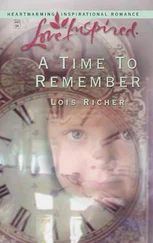Alexander Todd - A Time to Remember
Здесь есть возможность читать онлайн «Alexander Todd - A Time to Remember» весь текст электронной книги совершенно бесплатно (целиком полную версию без сокращений). В некоторых случаях можно слушать аудио, скачать через торрент в формате fb2 и присутствует краткое содержание. Город: Cambridge, Год выпуска: 1983, ISBN: 1983, Издательство: Cambridge University Press, Жанр: Химия, Биографии и Мемуары, на английском языке. Описание произведения, (предисловие) а так же отзывы посетителей доступны на портале библиотеки ЛибКат.
- Название:A Time to Remember
- Автор:
- Издательство:Cambridge University Press
- Жанр:
- Год:1983
- Город:Cambridge
- ISBN:0 521 25593 7
- Рейтинг книги:3 / 5. Голосов: 1
-
Избранное:Добавить в избранное
- Отзывы:
-
Ваша оценка:
- 60
- 1
- 2
- 3
- 4
- 5
A Time to Remember: краткое содержание, описание и аннотация
Предлагаем к чтению аннотацию, описание, краткое содержание или предисловие (зависит от того, что написал сам автор книги «A Time to Remember»). Если вы не нашли необходимую информацию о книге — напишите в комментариях, мы постараемся отыскать её.
A Time to Remember — читать онлайн бесплатно полную книгу (весь текст) целиком
Ниже представлен текст книги, разбитый по страницам. Система сохранения места последней прочитанной страницы, позволяет с удобством читать онлайн бесплатно книгу «A Time to Remember», без необходимости каждый раз заново искать на чём Вы остановились. Поставьте закладку, и сможете в любой момент перейти на страницу, на которой закончили чтение.
Интервал:
Закладка:
My wife and I visited our family in California on several later occasions. The first was on our way to Australia in March 1965, and the second on our return, On that occasion we left Canberra by air for Sydney on the morning of Good Friday, and had hot cross buns on the plane. Our connecting flight from Sydney to San Francisco did not leave until the evening, so we had tea and hot cross buns with the Le Fevres at their home in Northbridge. Owing to the complication of the date line, we found ourselves having hot cross buns again both en route to Hawaii and between Honolulu and San Francisco. The third time was in 1966, when I received an honorary doctorate from the University of California at Berkeley. These visits were particularly interesting, because they coincided with the period of widespread, and at times violent, unrest on the campus. I have mentioned earlier how at Aligarh in 1960 I had a cavalry escort to the degree ceremony; I went one better at Berkeley. The dissident students (abetted, I fear, by some members of the academic staff, who should have had more sense) were particularly incensed because one of my fellow graduands was Senator Goldberg, and they threatened to disrupt the graduation ceremony in the great open amphitheatre on the Berkeley hillside, in which the university ceremonies are staged. The upshot was that I had the distinction of processing to the ceremony with an escort of the Oakland riot police, steel-helmeted and heavily armed. Within the actual arena, no police were visible, but in all the aisles, and around the back and sides of the seated accommodation, were large numbers of huge young men wearing football sweaters who, I suspected, were not there simply out of a love for ceremonial. Partly, I think, because of their presence, when the President, Dr Clark Kerr, in a bold and forthright opening speech suggested that the protesters might at least accord the right of free speech to those with whom they did not agree, and those who would not might leave the auditorium, a small number did, in fact, rise and move sheepishly out. The vast majority, however, remained, and the graduation ceremony proceeded without any further interruption. Looking back at the events in Berkeley in those years, it is hard to understand what all the fuss was about. No doubt the Vietnam war had a lot to do with the feelings of the young people in America, but the dissidents were not all young, and the cults of flower people, hippies and so on, spread all over the world during a period of about ten years - and, indeed, relics of it still persist in the behaviour of some sections of our youth today. I also encountered student unrest in Ghana in 1971, while in 1973 I was invited to accept an honorary degree from the University of Ife in Nigeria, but never in fact received it, since the graduation ceremony arranged for March of that year had to be cancelled because of student riots. For similar reasons, the insignia of my honorary doctorate from the University of Paris had to be delivered to me in London in 1969 by His Excellency the French Ambassador.
In 1966 my son-in-law Philip Brown was awarded a Queen Elizabeth Fellowship to do a couple of years' research in an Australian university. He, with Helen and their daughter Alison, went to Adelaide, and my wife fulfilled her duty as a good grandmother by going out there in the autumn of 1967, to preside at the birth of a grandson, while I went off to Czechoslovakia on IUPAC business. We were both back in Australia in 1968, where I had two duties to perform. First, I was invited as chairman of the Royal Commission on Medical Education, which had just reported, to attend and address the joint meeting of the British and Australian Medical Associations in Sydney in August, and, immediately thereafter, in the capacity of Chancellor of Strathclyde University to attend the conference of the Association of Commonwealth Universities which was also held in Sydney. We were able to spend a fortnight's relaxed holiday on Lindeman Island during our stay, and finished our visit by going to Adelaide for a few days, and then to Western Australia where, at Fremantle, we saw our Adelaide family off on its return voyage to England, where Philip was taking up a lectureship in chemistry at the University of Newcastle; there, in 1970, our second grandson was born.
This accomplished, my wife and I flew from Perth to Johannesburg with an all too brief stop in that enchanting island Mauritius. In Johannesburg I visited the company owned by Fisons Ltd, and had some discussions about the organisation of the fertilizer industry in South Africa. We were only a few days there, but, in addition to seeing the industrial complex at Sasolburg, we visited Pretoria, where I had a talk with the chief of the South African Council for Scientific Research. Johannesburg is not, in my opinion, a very attractive city. Apart from its appearance, which is spoilt by the great heaps of mining waste, I found the general atmosphere depressing, and, in some measure, rather frightening. On the one hand one had the very colonial-style country clubs, and, on the other, the depressing black townships out on the veldt. To see apartheid in action is not pleasant, and I find it hard to understand why the whites in power cannot see the writing on the wall, and move more rapidly to a free society than they are moving at present. Disaster need not overtake South Africa, but even a brief visit convinced me that time is running short.
In the autumn of 1963 Harold Macmillan resigned as Prime Minister, and, after a deal of confusion at the Conservative Party Conference, Lord Home emerged as his successor, resigning his peerage in order to do so. In forming his government he appointed Lord Hailsham (who also disclaimed his peerage) as Secretary of State for Education and Science. The fact that I had just taken on the Mastership of Christ's, and could hardly take leave of absence until I had been there at least a year, enabled me to avoid becoming Minister of State for Science. It was, however, fairly clear that I would be in some danger of renewed political pressure, if the next general election, which was shortly due (and did indeed take place in October 1964), resulted in a Conservative victory. By late summer 1964 I had formed the view that Labour was likely to win the forthcoming election, and I had a fair idea of the kind of reorganisation of science and technology in government which that party, largely under the influence of Patrick Blackett and some other scientific Labour adherents, had in view. Blackett himself came to tell me about their plans, and it was clear to me that I was so much at variance with his ideas that, if Labour were to be returned to power, I would either have to resign as Chairman of A.C.S.P. and be labelled as a man who would only serve a Conservative government, or be sacked for refusing to toe the party line. Neither of these alternatives appealed to me, so I resigned with effect from 30 September 1964, and went off to open the new chemical laboratories at the Technion in Haifa.
David Ginsburg, an old acquaintance, was head of the chemistry department at Haifa, and had been responsible for the planning of the fine new building I was to open on 11 October 1964. He knew my reputation as one who always contrived, on visits abroad, to speak, or at least to be able to make myself understood in, the local language. Rather rashly he had told me a month or two before that this time he would fox me, since the local tongue was Hebrew. This I took as a challenge. I therefore wrote a suitable little speech in English, sent it in confidence to Professor Mazur at Rehovoth (who had worked with me in Cambridge), and told him to translate it into modern, colloquial Hebrew, to write out the translation in accented phonetic script, and to make a tape of it spoken by a native speaker. All this he did, and sent the material to me. It is true that I have always had a certain facility for languages, so I simply committed the whole speech to memory, and reproduced the pronunciation by mimicry from the tape. I thus arrived at the Haifa ceremony well prepared, but having sworn Mazur to secrecy. The ceremony began with a speech from the Minister of Education, followed by others from the Mayor of Haifa and the President of the Technion - all of them in flawless English. I followed with my little speech in Hebrew to an astonished audience which greeted it with great enthusiasm. I must admit that David Ginsburg took it very well, and the whole affair was a great success; the only snag was, that I had great difficulty in persuading the journalists present that I really didn't know any Hebrew at all!
Читать дальшеИнтервал:
Закладка:
Похожие книги на «A Time to Remember»
Представляем Вашему вниманию похожие книги на «A Time to Remember» списком для выбора. Мы отобрали схожую по названию и смыслу литературу в надежде предоставить читателям больше вариантов отыскать новые, интересные, ещё непрочитанные произведения.
Обсуждение, отзывы о книге «A Time to Remember» и просто собственные мнения читателей. Оставьте ваши комментарии, напишите, что Вы думаете о произведении, его смысле или главных героях. Укажите что конкретно понравилось, а что нет, и почему Вы так считаете.










